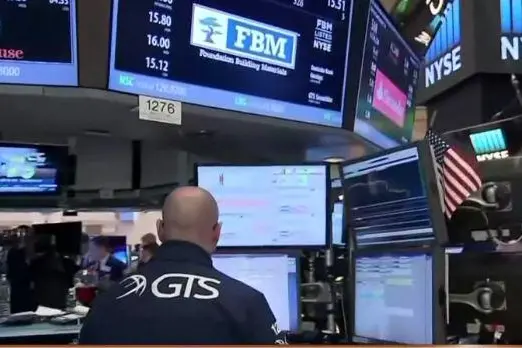PHOTO
Saturday, May 27, 2017
Dubai: Lombard Odier has reduced its US stock holdings slightly as valuations soar.
The manager with $233 billion (Dh855 billion) of assets under management offloaded part of its holdings in the world’s largest economy three months ago.
“We have slightly reduced exposure in the US. We are underweight one step on the US. Still we hold US shares, but we hold less than what we held about three months,” Christophe Lalandre, managing director at Lombard Odier told Gulf News in a phone interview.
“The trigger was valuations. Fundamentally the situation is positive in the US. It’s not based on economic fundamentals, its based on valuations,” said Lalandre.
The Trump Trades have pushed the valuations of US stocks to unseen levels since 2015. The US stocks were valued at 15 times forward Price to earnings, compared to 12.1 times in emerging markets.
Lombard Odier took the decision to slowly come out of the US stocks in January, when the asset manager put in place a strategy for 2017.
So that’s the reason why Lombard Odier has invested their clients money where they are likely to find more value ie European and emerging market stocks.
“We feel that European markets are undervalued compared to US markets by 10 per cent. That’s why we prefer to focus on markets which have more value and more potential,” he added.
Lombard Odier prefers continental Europe over the UK. In emerging countries, the asset manager likes Asian markets like India due to strong domestic market and strong structural reforms. Lombard Odier is bullish on Germany, France and Switzerland, and China in Asia.
Diversification
For local investors, bruised by tumbling oil prices, Lalandre said diversification is key for a regular income flow.
“The low oil price has guided investors in various directions. We found that they had less opportunities to invest locally, and more importantly they understood there is a need of diversification in their portfolio,” Lalandre said.
“They cannot hold 100 per cent of their portfolio in one country one region, they have to diversify that internationally,” he added.
Prices of oil, from which the Gulf economies derives majority of their revenues, have fallen by more than a half to a little more than $50 per barrel.
Fundamentals
Lombard Odier feels that the focus should be back on fundamentals.
“Most of the risk of politics are behind us after elections in Austria and France. We see less risk in Germany. We feel now is the time for investors to focus on fundamentals of the economy,” Lalandre said.
“We feel that our central scenario for 2017 is now focused on steady global growth in the world and prolonged economic expansion the US, and growth in Europe and emerging markets,” he added.
Bonds
“We have increased the exposure to emerging bonds in our portfolio, and high yielding bonds over the last few months,” Lalandre said.
Within the emerging bond space, the asset manager favours emerging bonds in local currency to take advantage of the rebound in local currencies against the US dollar.
“We are also looking to local options instruments or securities. We do look into issues of companies of the Gulf region, including the UAE,” he added.
The MSCI world Islamic index over the 10 years increased by 4.9 per cent, compared to 4.5 per cent returns in world non-Islamic index.
“This is with less volatility. By taking lesser risk we can achieve better performance. We have developed a tailor made solutions for investors who want to invest in Islamic framework,” he added.
Private equity
Lombard Odier also has an interesting alternative for investors, which is private equity.
“It makes sense for investors to consider private equity investments, who have a long-term view. Here we have more diversification,” he said.
The entry point to invest in a PE is $250,000 with a lock period of a minimum 8 years. The expected returns is at around 10 per cent per annum.
Factbox: Irrational fears on China
Lombard Odier didn’t make the decision to sell Chinese stocks, which underwent pain in the first three months of 2016.
“We were having irrational fears on China last year. The valuations that we were seeing at that time was as if we were undergoing a recession, despite growing at 6.5 per cent,” Lalandre said.
“We didn’t make a mistake to sell, when we were in the middle of irrational fear at that point in time,” he added.
Other investors lost trillions of dollars in that carnage.
By Siddesh Suresh Mayenkar Senior Reporter
Gulf News 2017. All rights reserved.





















